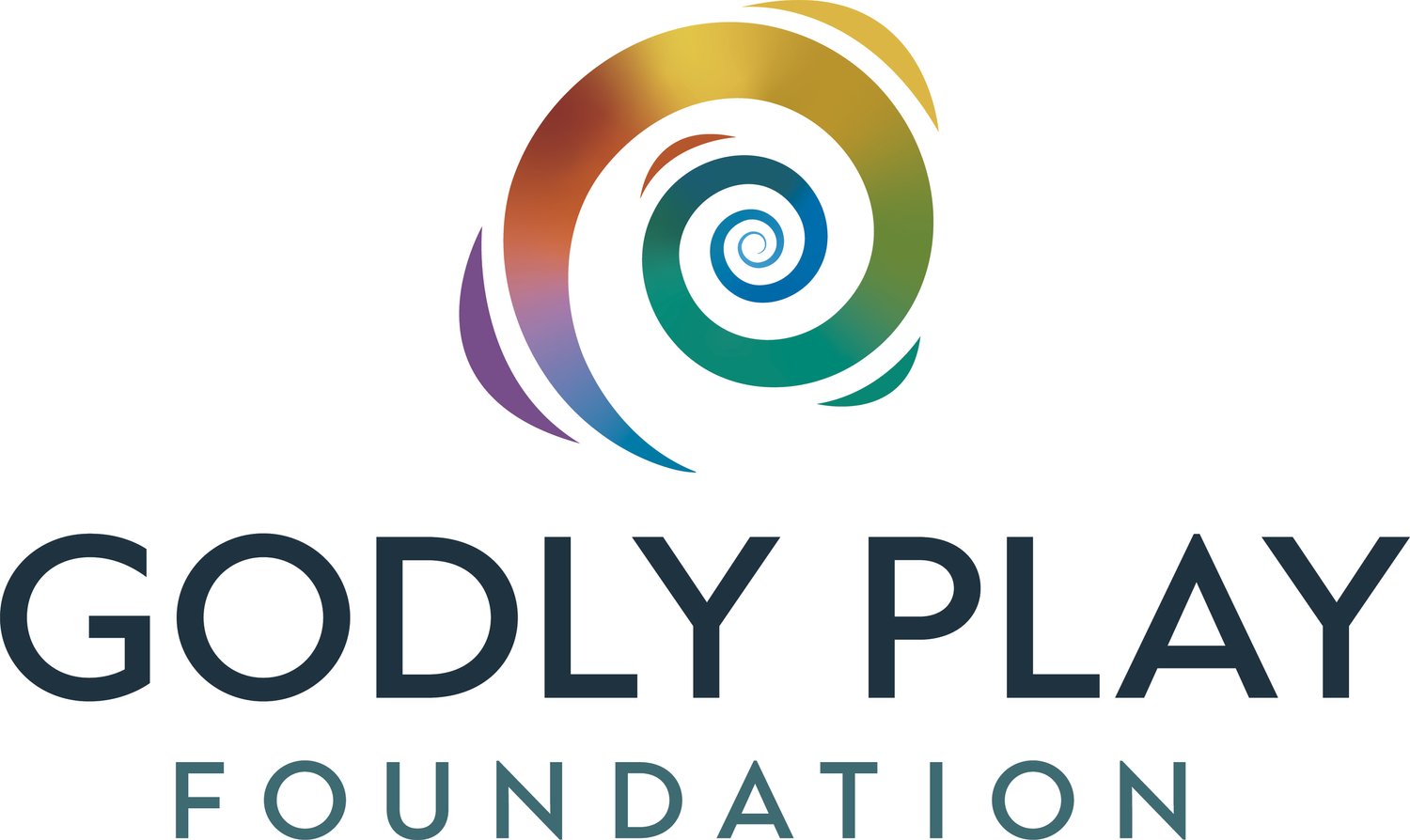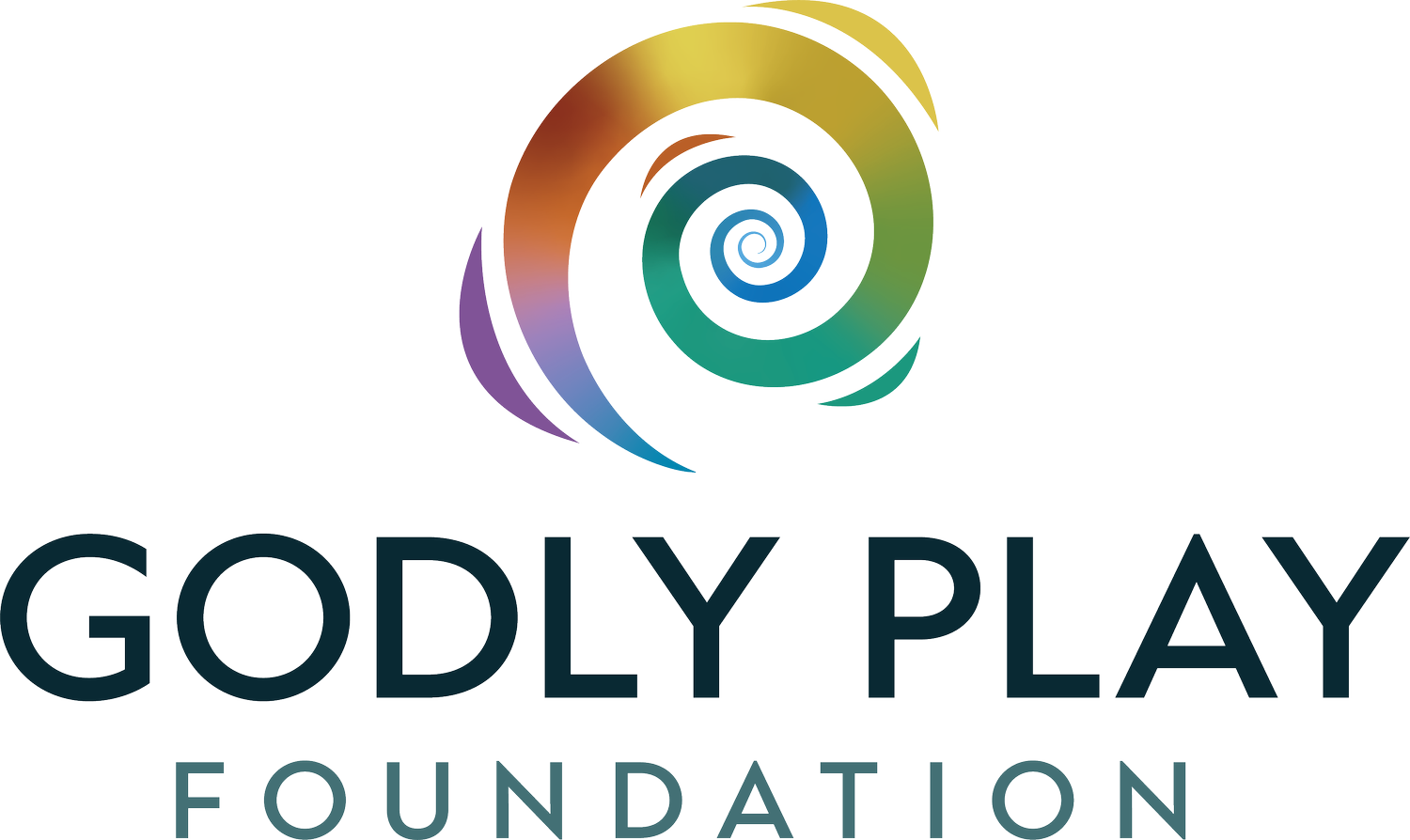A Diocese At Play
As Director of Christian Formation for the Diocese of Oklahoma, Sabrina Evans helps parishes evaluate their formation programs and find the right fit for their needs. When it comes to children’s formation, Evans not only recommends Godly Play; she personally arranges training for each parish, funds the tuition of every volunteer, and is present at every training to check in participants and serve meals. Ask Evans why she feels so passionate about Godly Play and, of course, there is a story.
She says, “When I took EfM [Education for Ministry], I thought, ‘Why aren’t we doing this for children? They can do it just as well as we can.’ They can read stories. They can connect pieces. They can consider how it affects them. ‘Where are you in this story? What’s important?’ Children can do this, too.”
Evans’ first exposure to Godly Play was an enlightening moment. She realized, “Godly Play is already doing this with children! And children can do it even better than adults. They don’t have all the baggage we bring to it.”
She appreciates that Godly Play encourages participants to develop their own faith. “Godly Play is theologically sound. It allows the children to think for themselves and to form their own theology. They begin to see how they fit into the story.”
Evans has led the diocese through a sort of Godly Play revival. She uses Godly Play at the diocesan camp, and now has Sunday morning programs in ten churches.
She encourages local churches not to think of Godly Play as a program just for small children. “It’s great for any age, including adults, really. What they get out of it depends on where they are – their age, their background. The stories will affect you in some way. They will challenge you or move you in one direction or another.”
The diocese recently sponsored an Advanced Training in Tulsa, OK. Advanced Training, designed for storytellers who have been working in the Godly Play room for several years, explores how to go deeper into the spiral curriculum through enrichment lessons, side-by-side stories, and other activities that are especially useful with older children who may have more exposure to the stories and more complex analytical skills.
Kristen Baer is a priest at Grace Church in Yukon, OK, a recent re-start in the diocese. “We have children from four years old up to fifth grade all in one room. Godly Play speaks to everyone, from little ones all the way up to adults. You approach it on your level.”
Baer says subsidized training made the program possible for Grace Yukon. “We hosted the last training, which worked perfectly for us. We had a lot of participation, and the subsidy meant the tuition was covered. Donations were made for the materials, and we had some workshops for material creation as well.”
As a priest, Baer uses Godly Play for instructing families prior to baptism. The stories she uses are “Holy Baptism” and “The Good Shepherd and World Communion.” For their work, they bake the communion bread together.
Godly Play is also used at the Children’s Center Rehabilitation Hospital, a 120 bed pediatric hospital serving the needs of medically fragile children with diagnoses involving neurological impairment, respiratory compromise or failure and multiple birth defects as well as traumatic brain injury. Chaplain Dorothy Bayles ministers to over a hundred patients who live at the center, all technologically dependent and mostly non-verbal. Bayles says there is little information about doing pastoral care with children who cannot speak. “I went to a conference and noticed some hospitals were using Godly Play.”
The premise that children have an innate sense of God rang true with Bayles. Her time at the center had already taught her that medically fragile children spend a great deal of time encountering God. Communication is long and slow. “I have often said, if there is anything I would love to hear from these children, it is simply this: Please tell me what you know about God.”
The limitations of Bayles’ patients require her to adapt Godly Play stories by using a tilted board. Some of the children cannot even move their heads. Some communicate through a series of blinks, while some are able to communicate using devices. A few of them can speak. She tells about one child who responded to “The Parable of the Good Shepherd.”
The little girl said, “I know how that sheep feels. He thinks, ‘Does anyone hear me crying at night? Does anyone know how scared I feel? Does anyone know how much I hurt?’”
After the wondering, the girl said, “You know this whole thing makes me feel so much better.”
Bayles has worked to accumulate an entire Godly Play material set, with help from the Diocese of Oklahoma. “Sabrina Evans was so instrumental,” she says. “She gave me books and materials. I’ve been able to call her any time I have a need. The diocese has been wonderful in supporting my ministry.”
The Diocese of Oklahoma has been subsidizing trainings for six years now. Evans encourages other dioceses to adopt a similar approach.
She says, “My congregations are not going to send just one person to a training. If they’re going to send one, they’re going to send two. That’s $600 that can go to supplies, or that can go to resources. Our job as a diocese is to provide them with training. It’s in my budget every year. I want them to know training will be available. We’re going to pay for it.”






